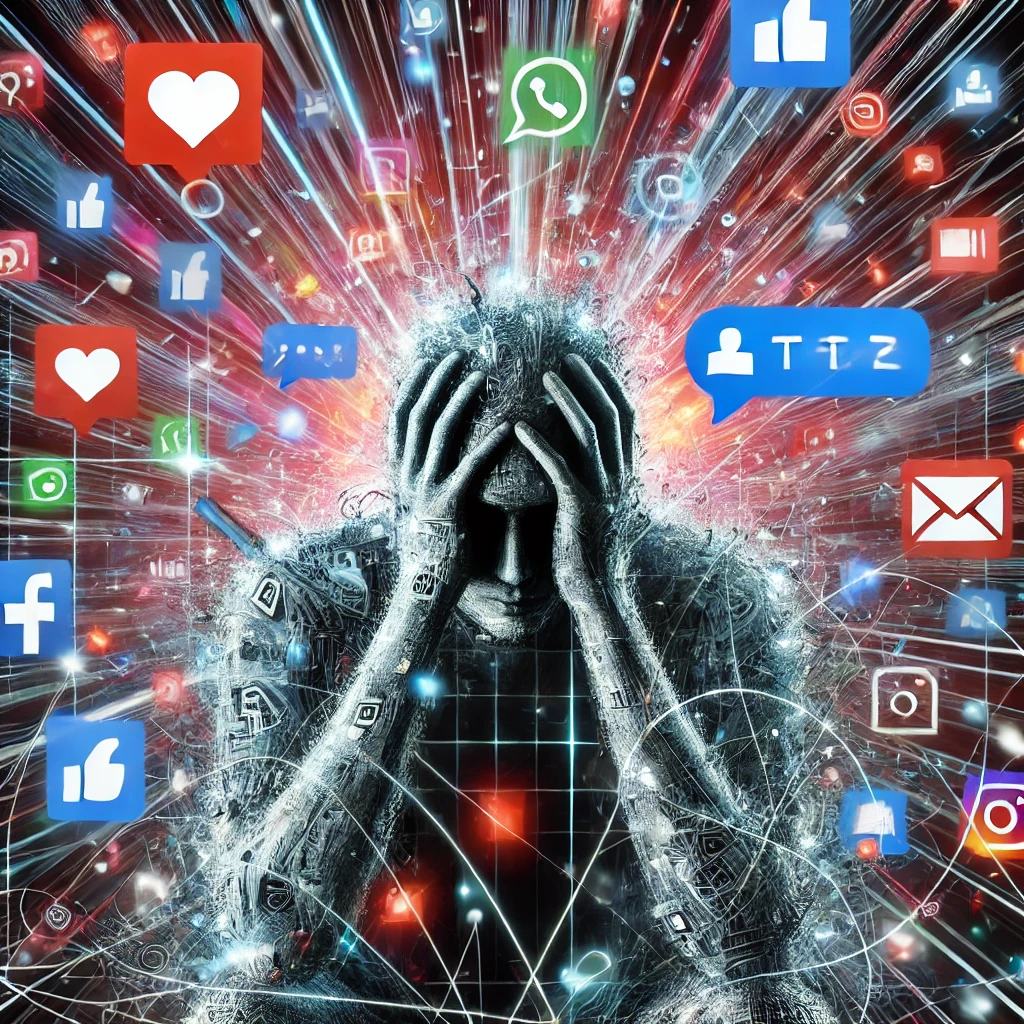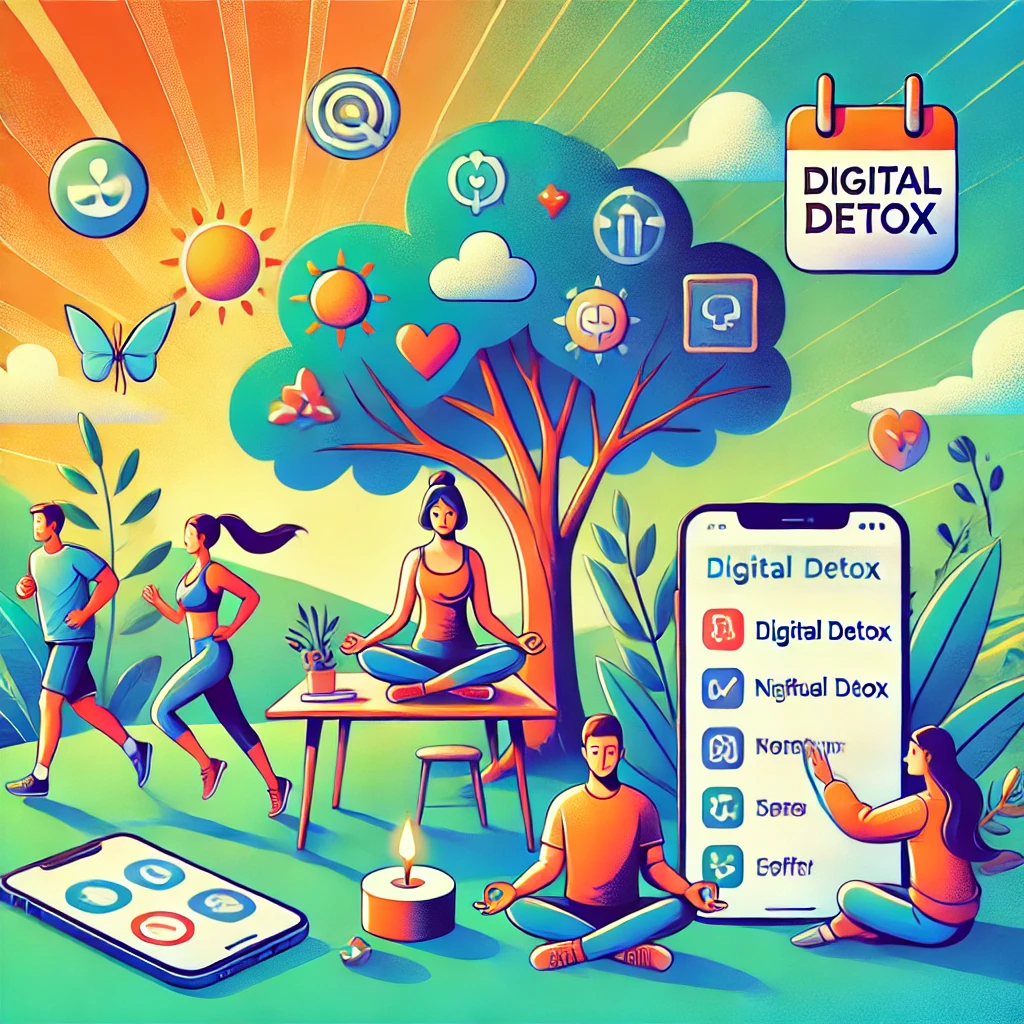Managing Anxiety in the Digital Age: Practical Tips for a Healthier Mind
Introduction
The present era of human history is characterized by the widespread use of digital technology and internet in almost all aspects of life, and this is called as the digital age or information age. Since the advent of digital age there is a change in the practices of humans that leads to the progressively worsened mental conditions since the 1990’s, with the number of disability-adjusted life years attributed to mental illness estimated to have risen by 37% between 1990 and 2013.
The millennial generation saw a dynamic shift in the modes of communications and way of sharing information. They have seen the evolution of social media from the early days of Friendster and Myspace to the present modern day social media comprising of Instagram, Twitter, Snapchat, and TikTok, this generation saw dynamic landscape of digital communication tools. this generation is the first generation to be affected by social media. Alot of studies have been done to understand the impact of specific social media behaviors on social anxiety. Excessive time spent on platforms, cyberbullying experiences, and the pressure to maintain a favorable online image have been identified as potential stressors.

What is digital induced anxiety?
It is a feeling of stress, worry and uneasiness that is caused by the excessive unhealthy interaction with the digital devices or social media platforms. this is very much prevalent these days due to the excessive usage of the social media platforms and constant connectivity.
Don Grant, PhD, who is also president of APA’s Division 46 (Society for Media Psychology and Technology) most of the teens and adults with whom he has worked are experiencing a stress that is directly related to the news they have learned about through social media or some other platforms online. Someone has read about an animal on the verge of extinction or the latest update on the melting polar ice caps, he may not even recognize it but that have affected their mood and its bothering them.
Though there is no formally recognized disorder or any diagnostic criteria, but psychologists are seeing patients suffering from news related stress and seeking guidance on how to help them. Recent research studying news seeking and emotional responses has found that more exposure to the latest headlines—whether through traditional news outlets or highlighted on social media—can undercut mental health. Another study, conducted by Matthew Price, PhD, of the University of Vermont in Burlington followed 61 young adults for 30 days found an association between the amount of exposure to news on social media and more depression and PTSD symptoms.
What are the digital-Induced Anxiety Symptoms
Common anxiety signs and symptoms include:
- Feeling worried, agitated, or tense
- Having a sensation of imminent danger, terror, or disaster
- Have an elevated heart rate.
- Rapid breathing (hyperventilation).
- Sweating
- Trembling
- Feeling weak or exhausted
- Trouble concentrating or thinking about anything other than the current stress.
- Having difficulty sleeping
- Having gastrointestinal (GI) difficulties
- Having trouble suppressing worry.
- Having the tendency to avoid things that cause worry.
When to seek help
When to visit your physician:
- You believe that your excessive worry is getting in the way of your relationships, career, and other aspects of your life.
- You find your fear, worry, or anxiety distressing and challenging to manage.
- You struggle with substance abuse, depression, or other mental health issues in addition to anxiety.
- You believe that a physical health issue may be connected to your anxiety.
- If you are experiencing suicide thoughts or actions, get emergency care right now.
Your concerns might not be resolved on their own, and they may get worse over time if you don’t seek help. See your doctor or a mental health provider before your anxiety gets worse. It’s easier to treat if you get help early.
What are Strategies for Managing Digital Consumption:
Indeed, a 2013 survey by APA’s Center for Organizational Excellence have some findings regarding the digital anxiety. The Stress in America survey found 65% of Americans somewhat or strongly agree that periodically “unplugging” or taking a “digital detox” is important for mental health. Yet only 28% actually do so.
Here are seven strategies to help you use technology in healthy ways:
Do not use phones behind the wheel.
Every year, thousands of people are killed due to inattentive driving. Turn off your phone’s notifications and keep it out of reach while driving.
Defend your sleep
Researchers believe this is due in part to the fact that phones and other technological devices generate “blue light,” which suppresses the production of the sleep-related hormone melatonin.
Turn off alerts!
Most of us configure our phones to beep or buzz whenever a new email, text, or social media notification arrives. According to the Stress in America poll, only 19% of Americans turn off social media app notifications. However, continual notifications can have a negative impact on well-being.
Managing expectations
Tell them if you won’t check email or text messages at work or on vacation. Tell your mom you’ll answer messages at night. Make sure your boss agrees before you leave for the weekend. If you have angry family and coworkers, disconnecting won’t help.
Use social media wisely
Many people have felt like their lives are less glamorous or exciting than their friends’ social media lifestyles. Social media may cause depression, according to some research. But you can improve your social media relationship.
Be present
Digital technologies and social media make staying in touch easy, but they also distract you from real-life relationships. And face-to-face encounters are vital for emotional well-being. In the Stress in America poll, 44% of those who check email, texts, and social media frequently or constantly feel detached from their families, even when together. Try to unplug with friends and family. Silence and hide your phone at dinner and family activities to avoid temptation.
Rest and recharge.
Relaxing, reflecting, and even creating require quiet time to think. If you use your phone every free moment, you’re missing out on recharge time. Set aside time daily to disconnect. Though challenging at first, you’ll eventually grab for your phone less and enjoy those quiet moments.
Engage in social interaction
Don’t allow worries to keep you from activities or loved ones.
Adhere to your treatment regimen
As prescribed, take your meds. Attend therapy sessions and finish any homework your therapist assigns you. Particularly when it comes to taking your prescription, consistency can make a significant difference.
Employ relaxation and stress-reduction strategies.
Examples of relaxation methods that can reduce anxiety include yoga, meditation, and visualization exercises.
Keep a journal
By monitoring your daily life, you and your mental health provider can determine what stresses you out and what tends to make you feel better.

Conclusion
In this day and age, properly managing anxiety demands adopting a well-rounded strategy when it comes to the utilization of technology. In spite of the fact that digital platforms provide a multitude of advantages, excessive engagement can result in increased levels of stress and anxiety. Steps that are vital to the maintenance of mental well-being include the implementation of conscious digital consumption, the establishment of clear boundaries, and the allocation of priority to offline activities. In addition, digital therapies, such as cognitive-behavioral therapy that is delivered online, have demonstrated remarkable potential in the treatment of anxiety symptoms. Individuals are able to take use of the benefits that technology has to offer while simultaneously protecting their mental health if they adopt a proactive and well-informed strategy.
Very researched and enlightening; this article stands out.
The article provides practical tips and thought-provoking ideas. Thanks for sharing your expertise with us.